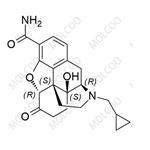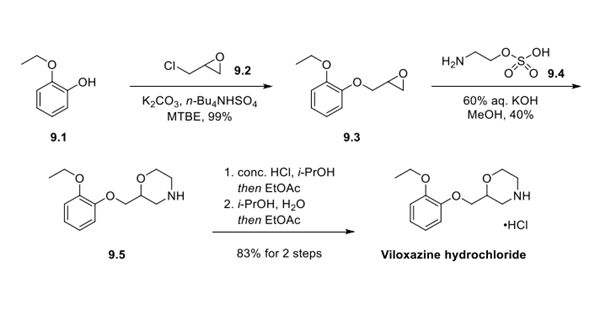Samidorphan:Synthesis and Introduction
Synthesis of Samidorphan
Samidorphan is synthesised using naltrexone as raw material by chemical reaction. The specific synthesis steps are as follows:

The synthetic approach to samidorphan relied upon on a semisynthesis and largely followed previously published routes. It should be noted that Alkermes patents disclose only the final salt formation step. Starting with commercially available opiate naltrexone (8.2), protection of the ketone as the ketal and subsequent triflate formation generated intermediate 8.3, making way for a palladium-mediated aminocarbonylation reaction to afford amide 8.4. Acidic removal of the acetal provided ketone 8.5, which was then converted to phenol 8.6 under reductive cleavage conditions. Salt formation with L-malic acid provided samidorphan in a quantitative yield.
Introduction of Samidorphan
Samidorphan and Olanzapine is a co-formulated once-daily oraldose tablet for the treatment of schizophrenia and bipolar I disorder, developed by Alkermes. Samidorphan and other opioids were initially discovered by researchers at Rensselaer Polytechnic Institute, who granted an exclusive worldwide license of certain patents to Alkermes in 2006. While Alkermes had initially developed samidorphan for the treatment of alcohol use disorder and binge eating disorder, researchers found co-dosing olanzapine with samidorphan mitigated the risk of weight gain. As such, samidorphan is known to bind to the μ-, κ-, and δ-opioid receptors, acting as μ- opioid receptor antagonist and partial κ- and δ-receptor agonists. The USFDA granted approval for use of olanzapine/samidorphan in the treatment of schizophrenia and bipolar I disorder. The combination, similar to other antipsychotic medications, carries a black box warning that the treatment is not approved for patients with dementia-related psychosis.
You may like
See also

US $0.00-0.00/mg2025-04-18
- CAS:
- 421552-35-4
- Min. Order:
- 10mg
- Purity:
- 95%+
- Supply Ability:
- 1000000


